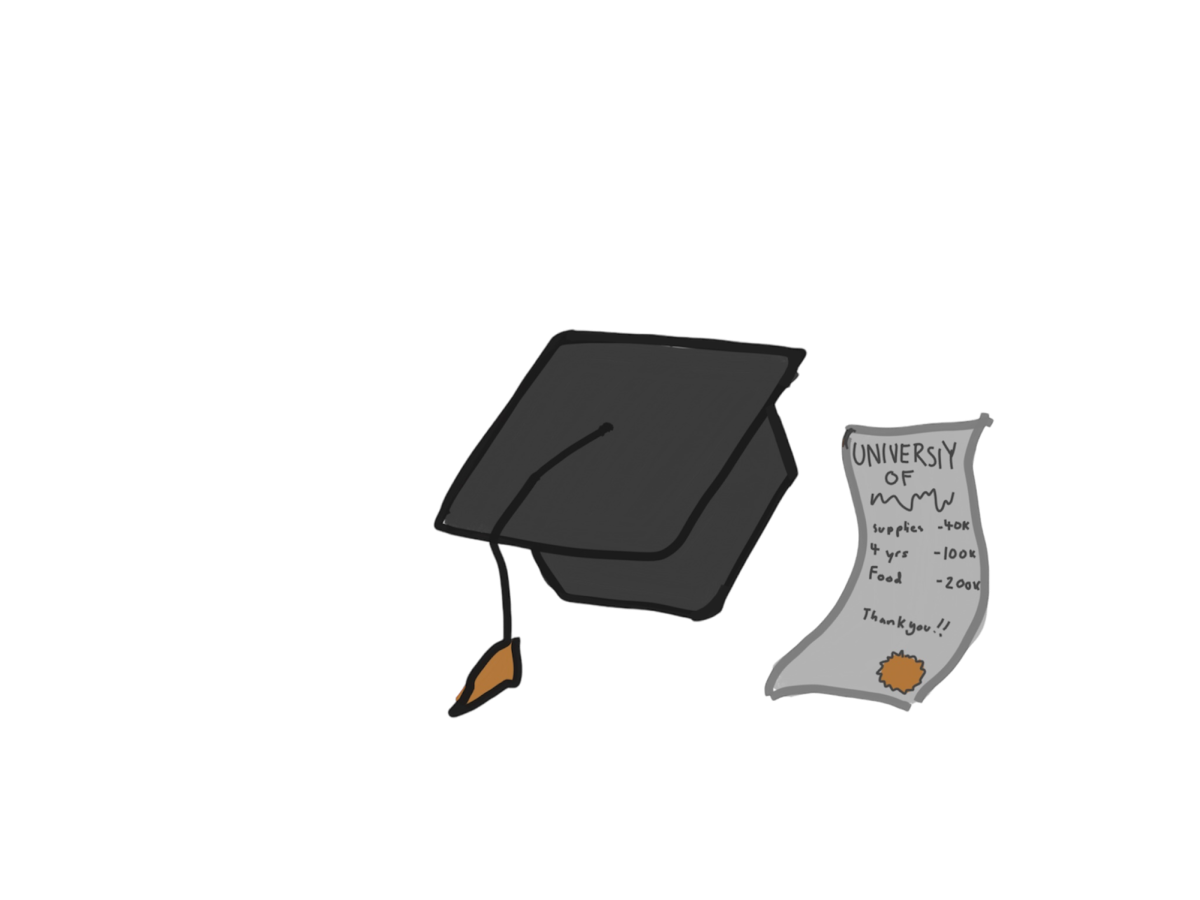For seniors, it’s college application season: the few-month period for which students have spent four years studying, cramming, and stressing. Canva resume templates are working overtime. AP Lit teachers across the nation are swamped with proofreading assignments. Ziggi’s Coffee employees are milking the already-thin wallets of caffeine-addicted teens. It’s the most wonderful time of the year!
However, the emphasis placed on these applications, and on attending a four-year college or university in general, is entirely misplaced. While it has its perks, college isn’t essential.
Before diving into the social and cultural currents surrounding college, let’s look at the numbers.
In 2022, the average yearly tuition for students attending their state’s flagship university (University of Colorado, University of Minnesota, etc.) paid $10,940 per year, and those who attended out-of-state public schools paid almost three times more, at $28,240. According to Bankrate, private institutions cost closer to 40k/year. Compare these figures to the median US income of about 37,000 per year; the price of college is too much for the average family to swing.
We are fortunate to live in an area as affluent as Boulder County. Most of us have grown up expecting college to be the “next step” after graduation–myself included–and nothing is inherently wrong with this expectation. College is a great place to launch into adulthood, meet your spouse, and make lasting memories.
Don’t pack up the minivan yet, though; let’s consider the actual payoff of this be-all, end-all, capital D Degree. Only about half of degree-holding US citizens feel that they actually use their college major in their job. It’s almost comical. The degree itself begins to look more like a receipt of purchase than a record of academic achievement.
The reality of college attendance is unrelated to a piece of paper, or some numbers on a Forbes statistic. Personal context is absolutely critical if you want to referee how “impressive” one of your peers’ institution of choice is. Consider someone who has a 4.6 GPA and a 1580 SAT; let’s call her Jane. Jane loves Metro State University. She’s thrilled to have been accepted, and can’t wait to start her adult life there. Now, consider another student–let’s call him John–who gets into Princeton. John forwards the news of his college choice to the @mohidecisions2025 Instagram page, and the reverberations of the ensuing post are felt in the hallways for days.
What wasn’t included in Jake’s @mohidecisions2025 post was the fact that he had a 3.3 GPA and a 1050 SAT. He got in because his dad is a well-known solar panel mogul, and his family is painlessly paying $100k per year. Jane’s Instagram post announcing her decision to attend Metro sparked none of the same fanfare, despite her academic superiority. Which of these students’ paths is “better?”
Here’s my answer: these two routes are incomparable. It’s hard to rewire the prevailing prestige-obsessed brain into general acceptance and support of everyone’s decisions. If collective opinion about post-high school plans shifted toward a more nurturing tradition, it would lead to better, healthier decisions by students: decisions untouched by the opinions of others. This doesn’t only apply to college either. If someone’s always dreamt of traveling the world, why stop them from taking a gap year? If someone wants to go to trade school, why discourage them? That sounds much better than sitting at a desk for years on end, typing numbers into a spreadsheet for some tech startup, a hard-earned diploma collecting dust on the wall.
People who go around flaunting their future institution’s “prestige” are the same people who grow up to make their salary their entire personality.
Don’t be that person.
































